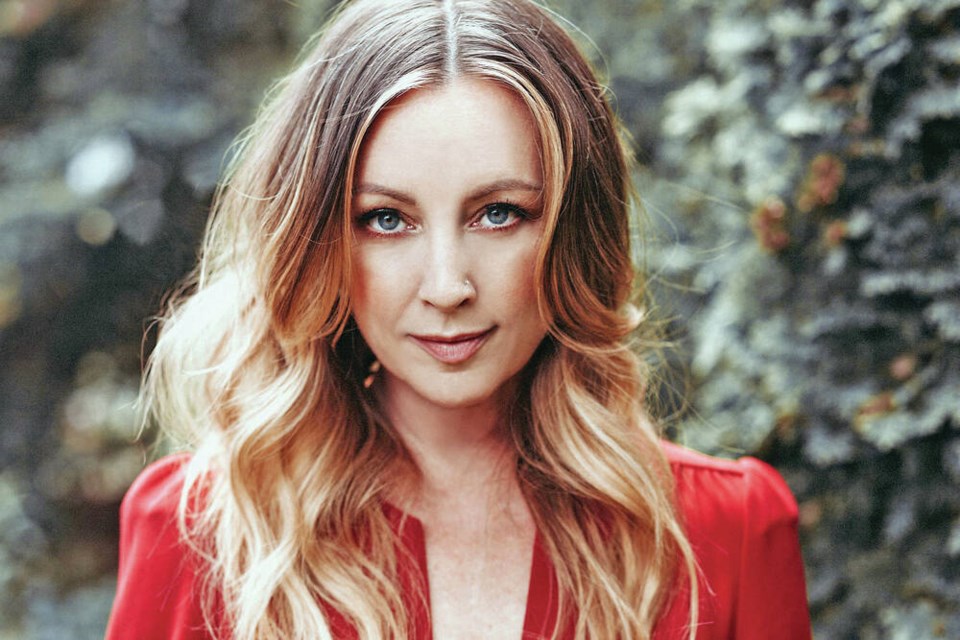An Evening with Tara MacLean
Where: Bolen Books, 111‑1644 Hillside Ave. (in Hillside shopping centre)
When: March 15, 7 p.m.
Admission: Free
When musician Tara MacLean wrote lyrics to her songs, she purposely hid intimate details inside metaphors. She kept her private life private — for reasons that become clear after reading her memoir, Song of the Sparrow.
Over the span of 352 pages, the singer-songwriter, who was raised on Prince Edward Island and spent her high school years in Victoria, writes openly about her life, much of which was magical and free-spirited. Some of it was horrific, however, and a foreboding darkness creeps into some chapters. She details incidents of abuse in a matter-of-fact manner that will stop readers cold, but MacLean doesn’t dwell on the details, nor does she lay blame at the feet of the guilty.
But the reveal is shocking nonetheless.
As someone who went to high school with MacLean for one semester, and shared many of the same friends, the abuse revealed in the book caught me flat footed. Our paths crossed in a professional capacity well after high school, when MacLean was beginning her career in music, and I remained unaware of her past struggles. My interview with MacLean, for a 1997 profile in the sa���ʴ�ý, mostly focused on impersonal details.
I told MacLean I felt guilty for not knowing what she endured, something she admits to hearing often from friends who read advance copies of the book. “I don’t know that you could have gotten those answers out of me, had you probed. We were just skirting the surface,” MacLean, 49, said. “When you’re telling your own story, it has to be the right time.”
MacLean decided now was the time to write her memoir, Song of the Sparrow, released Tuesday by Harper Collins. There’s also an accompanying album, Sparrow, featuring new material and re-imagined versions of past hits. It was important for her to have music accompany her first foray into writing, she said. “I’ve always had this superpower that is music, whether it was music that touched me and got me through or music that I was able to create. That was my life raft.”
She worked on the book during the pandemic amid a prolonged period of reflection, while in the company of her mother — who figures prominently in Song of the Sparrow. “My mother used to tell me I was a bird, because I sang before I spoke,” MacLean writes in the memoir. “Her little sparrow.”
MacLean and her mother spent the early part of the pandemic in quarantine on Prince Edward Island, where MacLean has a home (she also has property on Salt Spring Island, where her ex-husband, Modo Yoga co-founder Ted Grand lives). She would often ask her mother for clarity, and was given permission to disclose family secrets.
Some who are close to MacLean knew of the abuse she endured, but the majority did not. She hid personal messages in early hits such as Silence and Evidence, and continues to hold back a full reveal. Some names in the book have been changed, out of respect, and others for legal reasons. There were times during the writing process when MacLean would begin to tremble; the processing of grief was overwhelming at times, she said. “But that’s when I knew I was onto something.”
She does not consider her story unique or remarkable, but she hopes it proves to be inspiring. Plenty of people have it far worse than her, she said. “This is a life well lived. If I die now, I’ve done everything I’ve wanted to do. And I’ve forgiven myself and forgiven others. I’m light. Whatever happens now, it’s all gravy. I don’t have any answers for anybody, and I don’t pretend to. But I found some for me, and if people resonate with that, then I’ll be happy.”
MacLean enjoyed success as a solo performer — her manager was Nettwerk Records co-founder Terry McBride, who also manages Sarah McLachlan — and she received a Juno Award nomination as a member of the super-group Shaye, with Kim Stockwood and Damhnait Doyle. But Song of the Sparrow doesn’t always paint a rosy picture of the music business. The industry’s unforgiving underbelly, when it comes to women and their bodies, is laid bare more than once.
The book is dedicated to her three daughters, who have read Song of the Sparrow and came to terms with their mother’s difficult but inspiring journey to this point. That story is not yet complete, MacLean said.
“I didn’t set out to write a self-help book. I wanted to write a very long song, or a very long poem, about life in general. I used my life as the fodder for it, but I want it to be seen not just as memoir, but a piece of good work. If you pick up the book knowing there’s some darkness in it, know that I’m going to bring you out of it. Spoiler alert: I’m doing great. Clearly, there’s a happy ending.”



